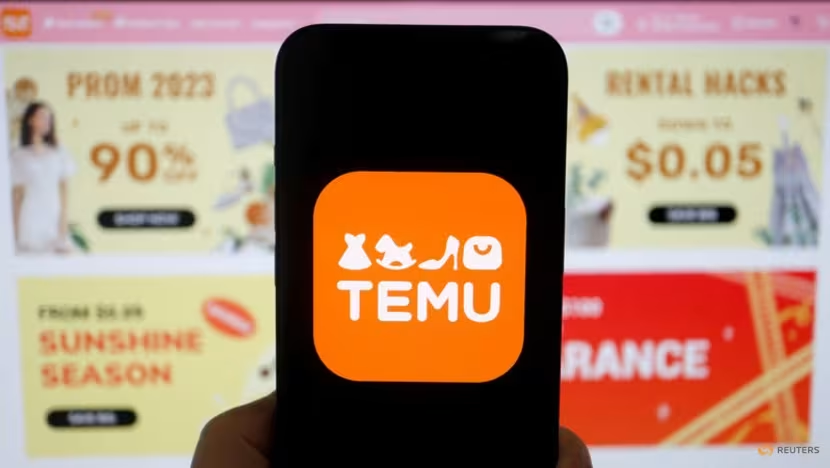This article originally appeared in Chinese on Momentum Works’s WeChat account. Translated into English by the Momentum Works team.
In the past week, various tech news sites have broken the news of SheIn’s exit from Indonesia.
Indeed, SheIn terminated its operations in Indonesia (or rather, stopped serving Indonesian customers) on 29th July:

Many observers have linked SheIn’s exit to its difficulty in drawing web traffic in Indonesia. With fewer than 5,000 monthly visits, its web visits lagged far behind that of players such as Zalora. However, in an age where paid user acquisition is the norm, SheIn’s low page views are likely to be the result of its unsatisfactory business in Indonesia, rather than the cause of it.
Furthermore, most users in Indonesia engage on mobile, not on the web. Based on its mobile downloads, it seems that SheIn had stepped off its efforts on acquiring users since the 14th or 15th of July. In the shopping category of Google Play store in Indonesia, its app ranking has steadily declined since then:

(Yet) another new policy at Indonesia’s customs
We find it interesting that SheIn chose to end its operations on 29th July– just a few days before the new requirements introduced by Indonesia’s customs.
As of 1st August, any recipient of imported parcels in Indonesia are required to submit either personal or business identification (NPWP or NIK/KTP/Driving license number). This new policy affects nearly all B2B, B2C, and C2C companies in Indonesia– document parcels are the only exception.
Below is a notice that SF Express had provided to its shippers:

While this is a snippet of the official announcement:

Should SheIn have stayed in Indonesia?
As a cross-border ecommerce company without an operations team in Indonesia, SheIn would find it hard to comply with these regulatory changes, since it would need to verify the particulars of its Indonesian customers without violating privacy laws.
Even if this new policy had not been enacted, SheIn would still have struggled to compete in Indonesia. While Shopee (one of its biggest rivals) has strong control over its fulfillment, SheIn, as an independent cross border seller, had to rely on service providers instead.
Before SheIn ceased operations, AsiaXpress (a freight forwarding company) had handled most of its shipments while local suppliers had overseen last-mile delivery. While SheIn had wanted to reduce costs by working with end-to-end logistics service providers, nobody in the industry seemed to be willing or able to satisfy the service level requirements while still being happy with the low price SheIn was demanding.
Simply put, SheIn could not be as cost-efficient as Shopee in Indonesia.
Furthermore, with no on the ground government relations team, SheIn did not have the ability to negotiate or clarify. Anyways, it had not penetrated Indonesia’s online fashion market properly.
Instead, it decided to focus their attention on other countries where growth was easy, at least in the short term. These include Thailand, Malaysia, and Singapore:

How do Indonesians feel about SheIn’s ceasing of operations? A few of our friends in Indonesia have expressed similar sentiments– while they could spend up to two hours browsing SheIn’s catalogue, they are not especially saddened by its exit. After all, they can get variety, competitive prices and fast fulfilment of fashion from Shopee, JD.id and Zalora.
Was Zalora dominating in Southeast Asia?
Though Zalora is a popular fashion brand, not many people know about its parent company, Global Fashion Group (GFG), which was already publicly listed in Germany. Backed by Rocket Internet, the group had incubated various fashion ecommerce platforms and brands in emerging markets.
It currently operates in Australia and New Zealand, Southeast Asia, the Commonwealth of Independent States, and Latin America (Namshi, its regional business in the Middle East, was sold to the real estate conglomerate, Emaar, in 2017):

According to GFG’s 2021 Q1 Results, Zalora currently has a total of 3.3 million active customers in Southeast Asia, accounting for a Net Merchandise Value (MV) of €85.9 million.

It’s clearly not catering to the mass market in this region– it is a fashion brand rather than an ecommerce platform.
It is right for Zalora not to become a platform. Fashion products are one of Shopee’s hottest selling categories in Indonesia– Zalora will not have an advantage if it tries to woo the mass market.
As for SheIn, we expect it to follow in the footsteps of TikTok and repackage itself as a Singaporean company if it plans on listing in the US.
Shopee itself is a Singaporean company.
But maybe SheIn will be back to Indonesia later, under the same or different band name.
















